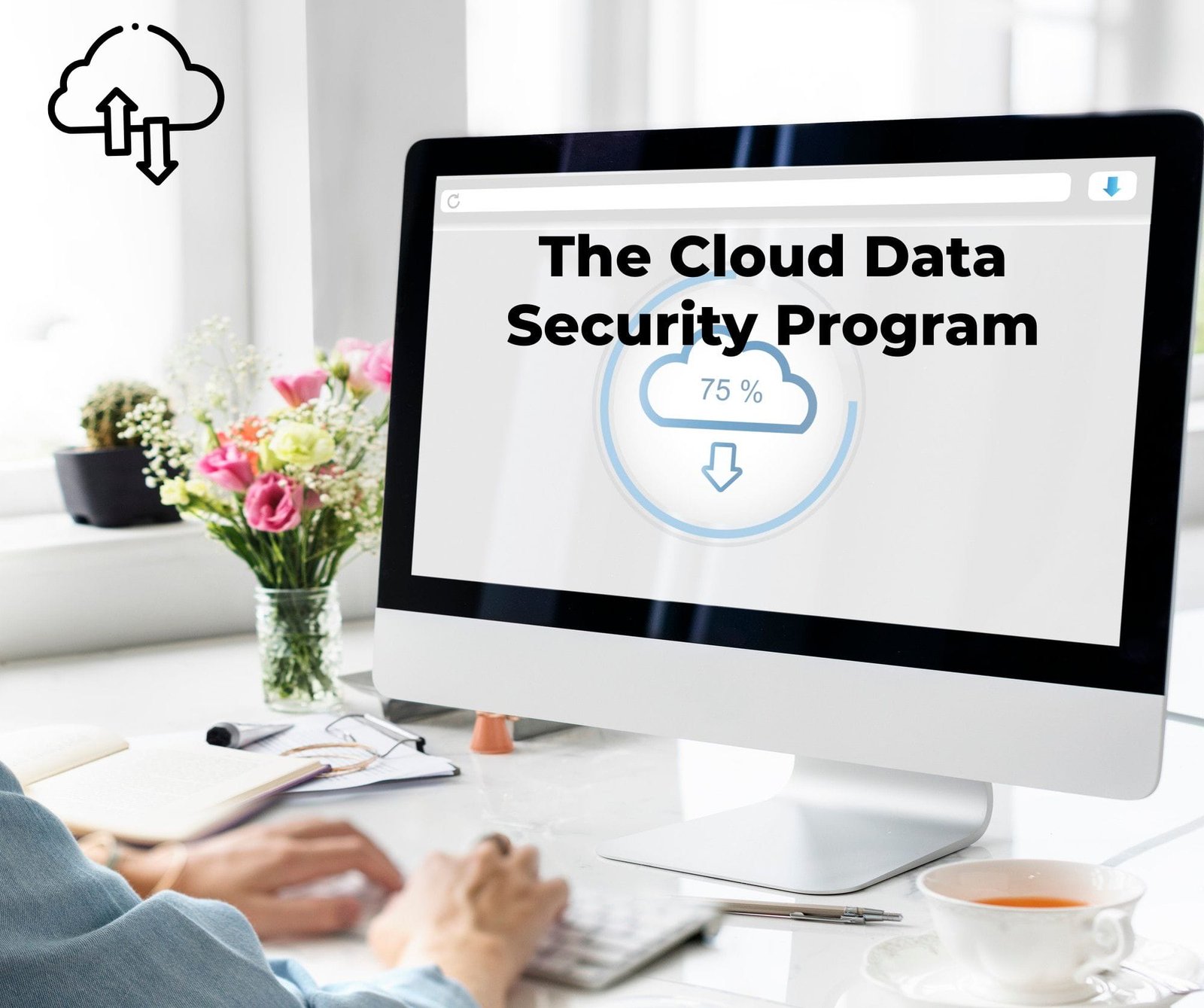Fortifying Your Small Business: The Ultimate Guide to Cloud Data Security Programs
For small businesses, protecting sensitive data poses serious difficulties. Given the prevalence of cyberattacks and data breaches in the current digital environment, businesses must now invest in robust cloud data protection solutions. This thorough guide’s objective is to arm small business owners with the information they need to select, implement, and reap the benefits of cloud data security solutions.
Introduction to Cloud Data Security for Small Businesses
In today’s globally interconnected world, data is essential to company operations. But this dependence also brings weaknesses. Despite their size, small businesses are not safe from online attacks. The crucial importance of data security and the particular difficulties faced by small businesses will be discussed in this section.
Data breaches have far-reaching effects in the current digital era, from financial losses to reputational harm. Small firms frequently lack the tools or knowledge necessary to successfully defend against these threats. Thus, it is essential to understand and put into practice cloud data security strategies if they are to survive and expand.
Understanding Cloud Data Security Programs
In the age of technological advancement, protecting private data kept on cloud servers is critical. Programs for cloud data security include a range of protections for the availability, confidentiality, and integrity of data. It is vital for small organizations looking to strengthen their data by understanding the fundamental elements and operation of these applications.
What are Cloud Data Security Programs?
Programs for cloud data security are extensive structures or collections of instruments and guidelines created to ensure the security and confidentiality of data kept in cloud settings. These programs use a multi-layered strategy that includes several security measures to reduce the risk of cyber threats, unauthorized access, and data breaches.
Types of Security Measures
- Encryption Techniques: Encrypting data while it’s in transit and at rest is a crucial component of cloud data security. Without the decryption key, encryption jumbles the data, making it incomprehensible to unauthorized users.
- Access Controls: Strong access controls ensure that only individuals with permission can access particular data. Strict permission settings, user authentication, and authorization are all involved in this.
- Regular Security Updates: To patch vulnerabilities and quickly address emerging threats, cloud data security programs require regular upgrades. Regular updates enhance security against changing cyber threats.
- Monitoring and Auditing: It is possible to identify any suspicious activity or anomalies in cloud settings by doing ongoing monitoring and auditing. Rapid reaction to possible security breaches is made possible by this proactive strategy.
- Multi-Factor Authentication (MFA): MFA requires several types of authentication, such as passwords, fingerprints, or one-time codes, before providing access. This adds a layer of security.
- Data Redundancy and Backups: Using data redundancy and backups ensures data availability even in the case of system outages or hacker assaults. Redundancy lowers the chance of data loss by distributing data among several servers or locations.
Why Understanding These Measures Matters
Understanding these security protocols enables small enterprises to make knowledgeable choices about the choice and execution of cloud data security programs. They may use it to match their security requirements with the best available options, ensuring complete protection without sacrificing effectiveness or usability.
Furthermore, keeping up with these security procedures helps firms improve and adjust their security posture in an ever-changing threat scenario. By proactively identifying potential vulnerabilities, it reduces the likelihood of data breaches and the resulting consequences.
Choosing the Right Cloud Data Security Program

For small organizations looking to protect their data from possible dangers, choosing the best cloud data security package is essential. However, the decision-making process might be intimidating due to the number of possibilities and complexity of these systems. The purpose of this part is to give small business owners a thorough overview of the evaluation criteria and elements to take into account when selecting the best security solution.
Factors to Consider
- Business Needs and Objectives: It’s critical to understand your company’s unique security requirements. Consider the kind and level of sensitivity of the data you manage, the laws governing compliance, and the necessary degree of protection.
- Scalability and Flexibility: Choose a security package that will expand with your company. Make sure you have the adaptability to change as demands arise without sacrificing security protocols.
- Compliance Requirements: Various sectors have their regulations governing compliance (e.g., GDPR, HIPAA). To stay out of trouble with the law, pick a program that complies with these rules.
- Cost and Budget: Take into account how much putting in place a security program will cost. If the budget is tight, look for solutions that provide complete security.
- User-Friendliness: Easy implementation and a user-friendly interface are essential, particularly for small enterprises with little technical know-how.
Evaluation Criteria
- Security Features: Evaluate the program’s array of security mechanisms. Check for monitoring capabilities, frequent updates, access limits, and encryption mechanisms.
- Vendor Reputation and Reliability: Examine the vendor’s past performance, standing in the sector, and capacity to deliver dependable security updates and assistance.
- Integration Compatibility: Determine compatibility with the programs and infrastructure you already have. Seamless integration reduces complications and disturbances.
- Support and Customer Service: Take into account the vendor’s degree of support. It takes responsive customer support and assistance to solve problems quickly.
- Trial or Demo Options: Choose programs that provide demos or trial periods. Before use, the program can be tested to improve understanding and suitability assessment.
Implementing a Cloud Data Security Program
Setting up a robust cloud data security policy is crucial for small businesses trying to protect their data from potential cyber threats. This section offers a methodical, small business-specific methodology that ensures a seamless integration process without interfering with daily operations.
Step-by-Step Guide
- Assessment of Current Infrastructure: Start by carrying out a thorough evaluation of your current data storage and infrastructure. Determine any possible weak points and locations in need of more security.
- Define Security Policies and Procedures: Clearly and concisely define security rules that describe incident response plans, user authentication procedures, encryption technologies, and data access controls. Make sure that these guidelines comply with applicable laws and industry standards.
- Selecting the Right Provider: Do research and pick a trustworthy cloud service provider that offers security features that meet your company’s requirements. Take into account elements including data backup choices, encryption techniques, and security certifications.
- Data Classification and Prioritization: Organize your data according to its importance and sensitivity. Give top priority to protecting extremely sensitive data while maximizing accessibility for less important data.
- Configuration and Implementation: To set up and implement the chosen security program, collaborate closely with the provider of your choice. To ensure a smooth integration with current systems, customize parameters according to your business needs.
- Employee Training and Awareness: Hold in-depth training sessions for staff members regarding the recently put into place security measures. Stress the value of following security procedures and spread knowledge about possible dangers.
- Regular Monitoring and Auditing: Set up a system of ongoing observation to identify and address any unusual or suspicious activity. Frequent audits help find areas for improvement and ensure compliance with security regulations.
Establishing a program for cloud data security requires a methodical and planned approach. Small organizations can successfully defend their data against possible threats while maintaining business continuity and data integrity by implementing best practices and following these procedures. Implementing a proactive approach to data security not only protects confidential data but also cultivates credibility and confidence with stakeholders and customers.
Benefits of Fortifying Your Small Business with Cloud Data Security

Beyond just staying protected from online attacks, small businesses can benefit greatly from investing in strong cloud data security measures. The various advantages that improving data security might offer these businesses are explained in this section.
Improved Data Protection
The protection of sensitive data is greatly improved by putting in place an extensive cloud data security program. Strong barriers that protect data from illegal access, breaches, and cyberattacks include encryption, access controls, and routine updates. Businesses can reduce the risk of data loss or compromise and ensure the confidentiality and integrity of their information assets by improving data protection.
Enhanced Customer Trust
Consumer confidence and trust are promoted by a strong data security architecture. In a time when privacy issues and data breaches are common, showcasing a dedication to protecting client data boosts confidence. Consumers are more likely to trust companies that prioritize security measures and invest heavily in them with their information, which builds long-term loyalty and connections.
Operational Continuity and Efficiency
Operational continuity is ensured by cloud data security, even in the event of unexpected disruptions or cyber events. Businesses may quickly recover and resume operations, minimizing downtime and related financial losses, when data is securely kept and backed up. Simplified security protocols also improve operational effectiveness by facilitating more efficient workflows and lowering the possibility of disruptions brought on by security breaches.
Cost Savings and Scalability
Programs for cloud data protection are originally thought of as investments, but they ultimately result in cost savings. The expenses incurred for damage management, legal fees, and regulatory fines following a data breach are significantly more than those associated with taking preventive security precautions. Furthermore, scalable security solutions spare companies from needing to perform major overhauls or upgrades down the road by enabling them to expand and modify their security protocols as their operations develop.
Common Misconceptions About Cloud Data Security

False beliefs about cloud data security frequently prevent small enterprises from utilizing these services to their full potential. It is essential to address issues and dispel myths to provide business owners with correct information and allay fears. The purpose of this section is to dispel some of the widespread myths around cloud data security.
Myth: The Cloud is Inherently Insecure
Reality: Despite popular opinion, cloud service companies make significant investments in security. The majority of trustworthy suppliers use strong encryption, access controls, and frequent security updates by strict security guidelines. The cloud may be extremely secure when set up and maintained appropriately, often surpassing security measures put in place by individual companies.
Myth: Cloud Data Security is Expensive
Although the initial outlay may appear substantial, the cost of putting cloud data protection procedures into place is frequently much less than the possible financial consequences of a data breach. Furthermore, a lot of suppliers have scalable price structures, so organizations can select plans that fit their financial limitations.
Myth: Lack of Control and Visibility in the Cloud
Cloud environments give enterprises a great deal of visibility and control over their data. Businesses can track access, monitor activity, and keep visibility across their cloud infrastructure with the use of sophisticated monitoring tools and powerful reporting functionalities. Businesses are still able to maintain management of their data if they set things correctly.
Myth: Cloud Security is One-Size-Fits-All
Every organization has different needs when it comes to security. Cloud service providers enable enterprises to customize security measures according to their unique requirements by providing a variety of customizable security choices. These applications are flexible enough to accommodate different business models and data kinds, with customizable encryption levels and access controls.
Future Trends in Cloud Data Security
Cloud data security is a dynamic field with ever-changing difficulties and constant developments. Small firms must anticipate future developments in this field to stay competitive, respond to new challenges, and take advantage of opportunities. The predicted advances and trends in cloud data security are examined in this section.
Advanced Encryption and Data Protection
With an emphasis on increasingly complex algorithms and approaches, encryption techniques are expected to evolve in the future. Homomorphic and quantum-resistant encryption, which provide better defense against increasingly complex cyberattacks, are set to become more prevalent.
AI and Machine Learning Integration
Cloud data security will be completely transformed by the combination of machine learning (ML) and artificial intelligence (AI) technologies. Businesses will be able to proactively identify possible risks and vulnerabilities and take preventative measures to minimize threats before they materialize thanks to AI-driven threat detection and predictive analytics.
Zero Trust Architecture
As a proactive security architecture, Zero Trust Architecture (ZTA) is becoming more and more popular. ZTA has no faith in any system or user, either inside or outside the network perimeter. To provide granular security measures to protect data, it places a strong emphasis on micro-segmentation, strict access controls, and continuous authentication.
Privacy-Preserving Technologies
The development of privacy-preserving technologies is imminent as privacy concerns grow. Differential privacy and federated learning are two strategies that will make it possible to share and analyze data while protecting the rights of individuals to privacy, which is essential for adhering to strict data protection laws.
Conclusion
In conclusion, protecting your small business with an extensive cloud data security policy is essential, not just a choice. Through a comprehensive understanding, careful selection, and successful implementation of security solutions, organizations can effectively traverse the constantly changing cyber threat landscape, protect their important data, and foster customer confidence.
FAQs
Are cloud data security programs expensive for small businesses?
Cloud security programs offer various pricing models, including scalable options suitable for small business budgets.
Can I trust the cloud to secure my sensitive business data?
Yes, when implemented correctly with encryption and proper access controls, cloud data security can be highly reliable.
Do I need specialized IT knowledge to implement these security measures?
While some technical understanding helps, many providers offer user-friendly interfaces for easy implementation.
What happens if there’s a breach despite having a cloud security program?
Even with robust security, breaches can occur. However, these programs significantly reduce the likelihood and mitigate the severity of such incidents.
How often should I update my cloud data security measures?
Regular updates and maintenance are crucial. It’s recommended to follow the provider’s guidelines and industry best practices.







